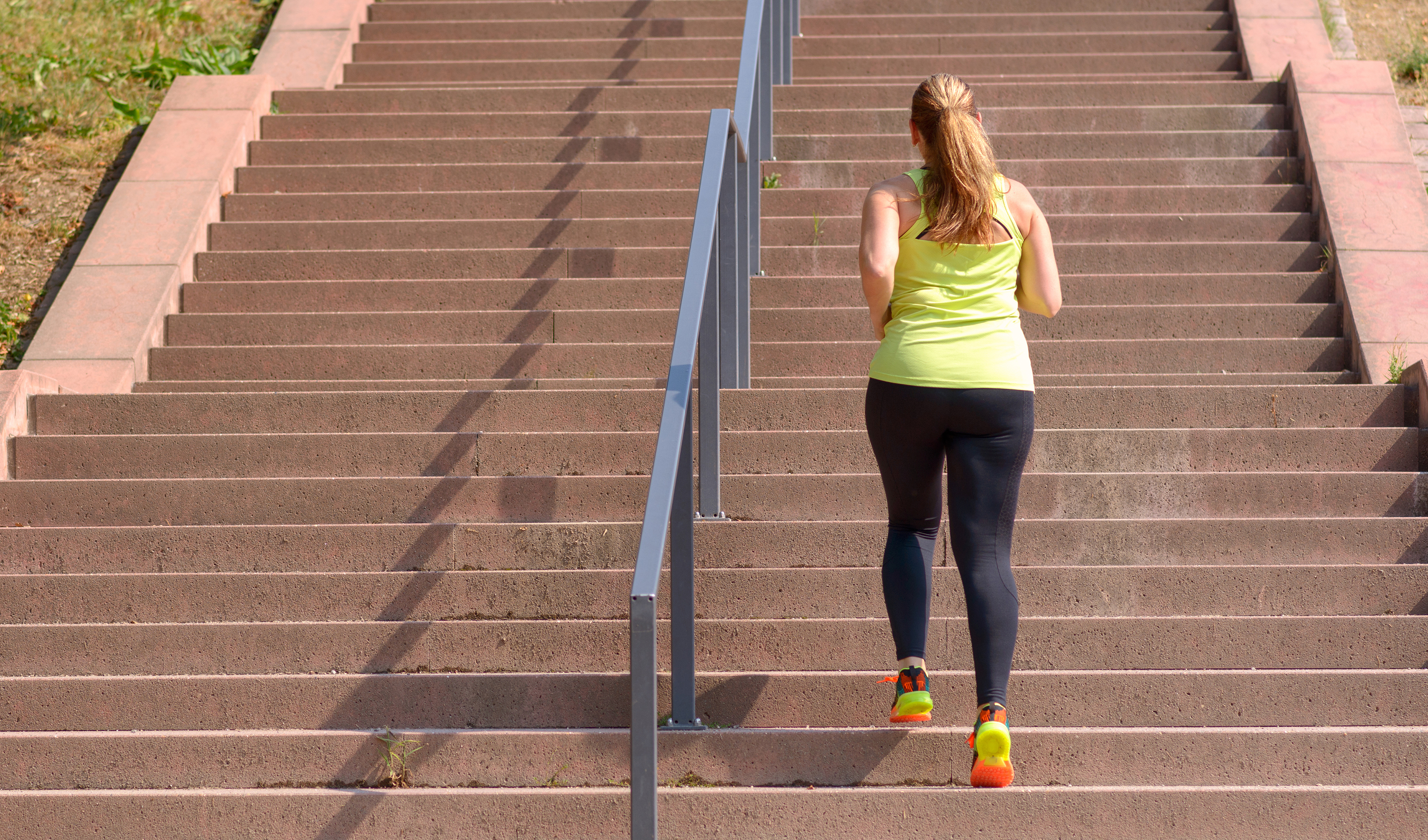
If you love your afternoon cuppa joe, there’s probably a good reason. It smells divine, and the caffeine offers a jolt when lying down under your desk is more appealing.
But for some people, there are downsides to consuming too much caffeine1, including:
So, what’s an overly caffeinated person to do? For a boost without the coffee, choose from these proven methods for an afternoon wake-up call.
Rev up with a ten-minute stair climb.
An easy stroll up and down stairs for 10 minutes had a more energizing effect on sleep-deprived study participants than a full cup of coffee—and the high-intensity workout has bonus fitness benefits.2
Sip a spot of green tea.
Unlike coffee, the caffeine in green tea contains a substance that picks you up at the same time as it evens you out. That means you don't get the jitters that sometimes come with coffee. Plus, green tea is a rich source of health-enhancing antioxidants.3,4
Find a place in the sun.
In more than one study, exposure to bright light had an immediate and positive effect on the feeling of alertness and vitality. Bonus: Daylight helps you regulate your nighttime sleep, too.5
Breathe in an energizing scent.
There's some intriguing science behind the power of aromatherapy. Researchers have found a significant reduction in mental and physical fatigue after gently inhaling the scent of high-quality essential oils. Peppermint oil seems to be the most reviving fragrance—and with its mouthwatering presence, it's not hard to see, or smell, why.6,7
Enjoy a light, nutritious snack.
A healthy snack of high-quality carbs might be your best caffeine alternative because it feeds your calorie-hungry brain. The higher quality of the carbs, the more sustaining the snack. Need some ideas? Grab a banana and a spoonful of peanut butter, hummus with crunchy vegetables, or whole-grain crackers and sliced cheese.8
Drink a tall glass of water.
When you’re short on fluids, one of the first signs is a feeling of fatigue. Get ahead of the feeling by staying hydrated. Keep sipping plain, refreshing water all day. The National Academy of Medicine recommends about 2 liters for women and 3 liters for men.8
Of course, none of these caffeine alternatives offer that unmatched coffee aroma. If these healthy energizers work for you, but you still miss your java, you could keep a jar of coffee beans nearby. That's a whole different kind of aromatherapy.
A MOBE Guide can help you find even more ways to reach your health goals. Get started today.
References:
1. “Caffeine: How Much is Too Much?” Mayo Clinic, https://www.mayoclinic.org/healthy-lifestyle/nutrition-and-healthy-eating/in-depth/caffeine/art-20045678.
2. Derek Randolph, et al., “Stair Walking is More Energizing Than Low Dose Caffeine in Sleep Deprived Young Women,” Physiology & Behavior 174 (May 2017): 128-135, https://doi.org/10.1016/j.physbeh.2017.03.013.
3. F.L. Dodd, et al., “A Double-Blind, Placebo-Controlled Study Evaluating the Effects of Caffeine and L-Theanine Both Alone and in Combination on Cerebral Blood Flow, Cognition and Mood. Psychopharmacology 232, no. 14 (2015): 2563–2576, https://doi.org/10.1007/s00213-015-3895-0.
4. Yu-song Teng and Di Wu, “Anti-Fatigue Effect of Green Tea Polyphenols (-)-Epigallocatechin-3Gallate (EGCG),” Pharmacognosy 13, no. 50 (2017): 326-331, https://doi.org/10.4103/0973-1296.204546.
5. Karin Smolders and Yvonne De Kort, “Bright Light Effects on Mental Fatigue,” (paper presented at Proceedings of Experiencing Light, Eindoven, The Netherlands, November 2012), https://www.researchgate.net/publication/235779473_Bright_light_effects_on_mental_fatigue.
6. Elizabeth Varney and Jane Buckle, “Effect of Inhaled Essential Oils on Mental Exhaustion and Moderate Burnout: A Small Pilot Study,” The Journal of Alternative and Complementary Medicine 19, no. 1 (January 2013): 69-71, https://doi.org/10.1089/acm.2012.0089.
7. Zhiyue Li, et al., “Does the Fragrance of Essential Oils Alleviate the Fatigue Induced by Exercise? A Biochemical Indicator Test in Rats,” Evidence-Based Complementary and Alternative Medicine 2107, (May 2017): 1-7, https://doi.org/10.1155/2017/5027372.
8. “9 Tips to Boost Your Energy—Naturally,” Harvard Health Publishing, Harvard Medical School, https://www.health.harvard.edu/energy-and-fatigue/9-tips-to-boost-your-energy-naturally.